Rolf Wiesemes:
I guess I was thinking about video podcasting and podcasting before the ePioneers project started, and I - at some point just before that, I was looking at the website of some American Universities, MIT and Harvard in particular, I think, where quite a few of their teaching materials and talks, and public lectures are all available on the web.
And I thought, well, there must be something similar that we can do here. And I guess the, sort of, pedagogy around what we’re - how I wanted to use that was really something that started to develop gradually. It wasn’t all there right from the start.
What I wanted to achieve with these video podcasts, or vodcasts, was for people to be able to watch, sort of, a short film, with the slides coming up on the screen, plus the audio being the person talking through these slides.
Fairly simple really, but turning a PowerPoint into jpegs and then into a short film with the audio, and all this edited in a way so that it makes sense for somebody who hasn’t heard this before, and who wasn’t there, turned out to be relatively, at least, for me, relatively complex initially. Now, having done it, I don’t think it’s complex at all.
Interviewer:
Rather than just capturing what happened and making it available, you’re doing an editing role for a different audience. Do you want to say a bit more about why you think that’s important, and what the difference is?
Rolf:
I think the - being at a lecture live, it’s a bit like the difference between going to a live concert and listening to music, or watching a video, or watching live performances on TV, which is completely different from being at Rock City or whatever. I guess that’s, fundamentally, the difference.
So, for example, if you’ve got a lecture where the person who’s introducing this theory is making some jokes about football before the actual lecture starts, which might be about a very serious issue, the jokes about football would be completely inappropriate in a podcast or vodcast, I think, because, whilst they might fit in the live lecture, and make perfect sense, because of the context, and everybody knows why these jokes are being made, they don’t make sense to somebody who comes in as an outsider, and thinks, I was thinking I was going to have a lecture on, I don’t know, educating out of poverty in Africa, and this guy’s talking about football.
Once the lecture got going, I think there was probably a lot less editing to do, because also for the simple reason that it wasn’t really interactive. Where I still went in doing some editing was looking at very long breaks, when the lecturer was looking through his notes, and checking where he was, and so on. So, sort of, in that sense, I cleaned it up a bit, but again, I think that’s important, because it’s a different medium really.
When I was trying to do the video podcasts initially, due to various issues that came up with a CDRG talks, like copyright, like pictures that couldn’t be published because a lot of what people were talking about in these - what I was thinking was going to be the initial video podcast, was unpublished research.
And, whilst talking about this was fine, but then, putting it up, out in the public domain worldwide as a vodcast, or as a video podcast, was a completely different matter. So that was really, really difficult.
Interviewer:
So you reached a point in your project where your original goals were no longer feasible?
Rolf:
I would say the original goals were still there, but I just had to use a different venue in terms of what the sources of the video podcasts were going to be.
So instead of the using the CDRG I then chose to use the inaugural lecture given by one of the new Professors in UNESCO Centre for Comparative Education Research, which was very easy to do then, and which enabled me to go through the whole technical process of producing a short film, for the video podcast then to be put up.
One of the interesting side effects of that was then that I got in touch with Andrew Burden, who’s the podcasting co-ordinator for the whole of the University, who was very helpful, and who also put this lecture up as a special lecture on the general University of Nottingham website.
So I think, in this regard, the School of Education, and particularly UNESCO Centre got something out of it as well.
Rolf:
I think I’m now coming to the point where I really want to start thinking about, “Okay, how do I want to use podcasts or vodcasts in my learning and teaching?”
So, for example, I’m thinking about putting a small project together where we record a series of people talking about teaching sensitive issues, which is one of my research interests, and then use that as a preparation tool for a seminar with students, rather than having a lecture and then the students just being there.
So I guess, at this point, I’m starting to think more about pedagogy, whereas before, I wouldn’t really have been able to do that, because I was too, sort of, focused on, how do I produce this thing, first of all, and where do I put it, and so on?






